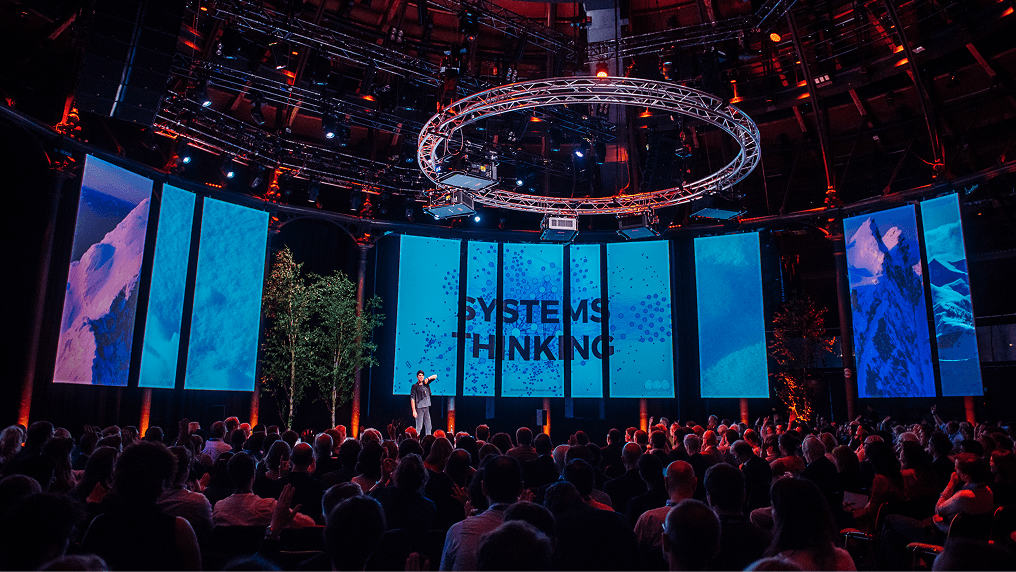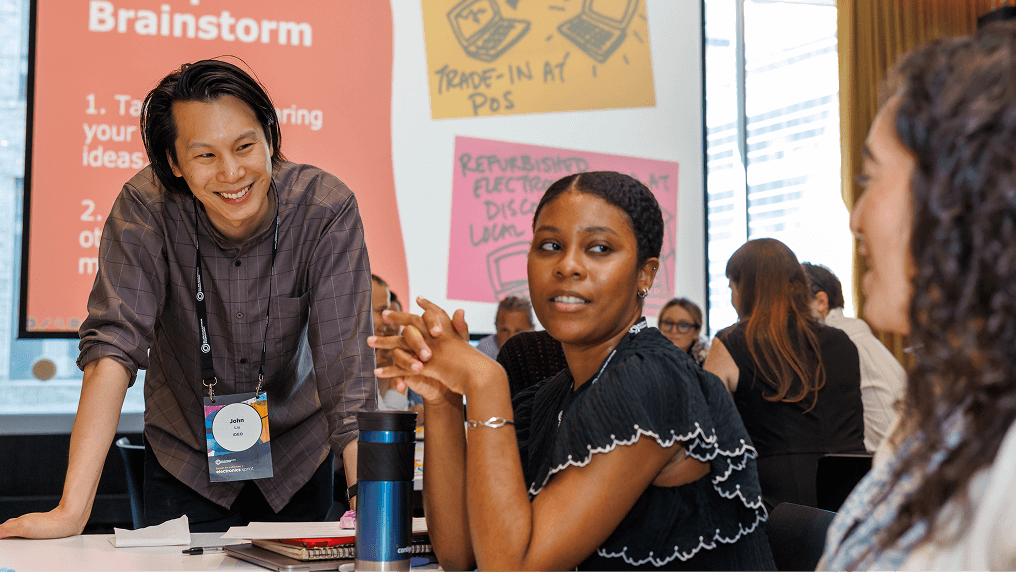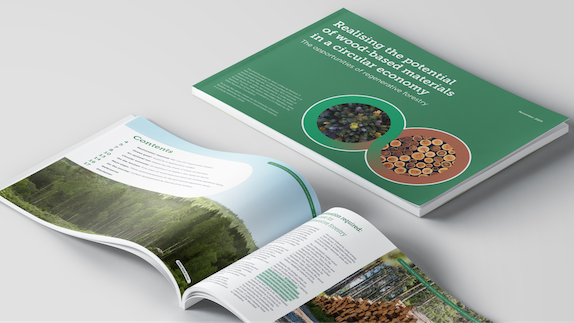
Realising the potential of a circular economy for wood-based materials
The opportunities of regenerative forestry
This briefing paper aims to clarify and elevate the role of wood-based materials and regenerative forestry in a circular economy. As users of wood-based materials, the co-project participants evaluate current forestry practices and the opportunities of regenerative forestry for nature, the economy, and society.
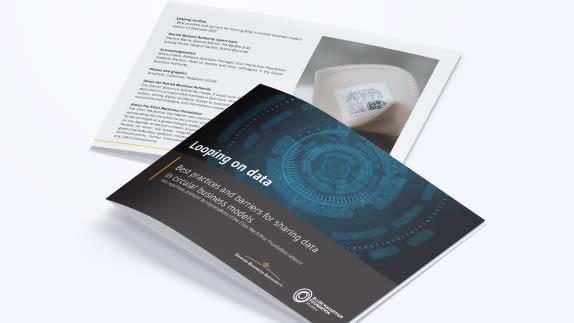
Looping on Data
Data sharing best practices for circular business models
This report shows the power of data sharing in promoting circularity. It explores material data travelling up the value chain and product performance data travelling back in the value chain. A series of case studies from across the Foundation's Network provide examples on how to get started, how to apply more or less advanced data sharing technologies, and ideas to overcome barriers.
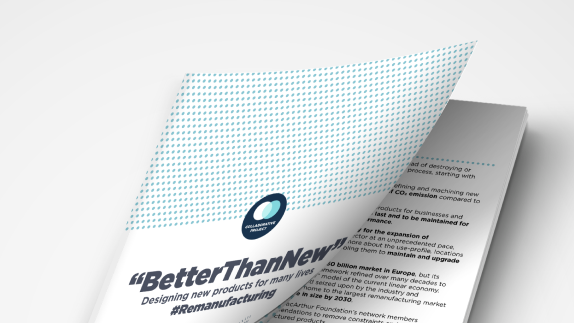
#BetterThanNew
Designing new products for many lives.
This white paper highlights the power of remanufacturing in the context of a circular economy. To enable remanufacturing to be adopted at scale, co.project members identified recommendations to remove constraints and create strong incentives for remanufactured products.
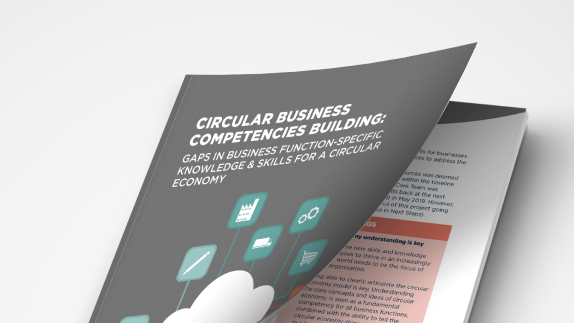
Building Circular Business Competencies - Phase 1
Open-source resources to address specific business functions needs.
Using cross-company collaboration, user-centred approach and an iterative process, this co.project aims to create open-source tools and resources to address the needs of specific business functions to transition to a circular economy. There are two resources currently in development:
Communicating the circular economy for marketing and sales (a slide deck with circular economy assets)
Managing changing supplier relationships (data collection framework with a checklist of questions for suppliers)
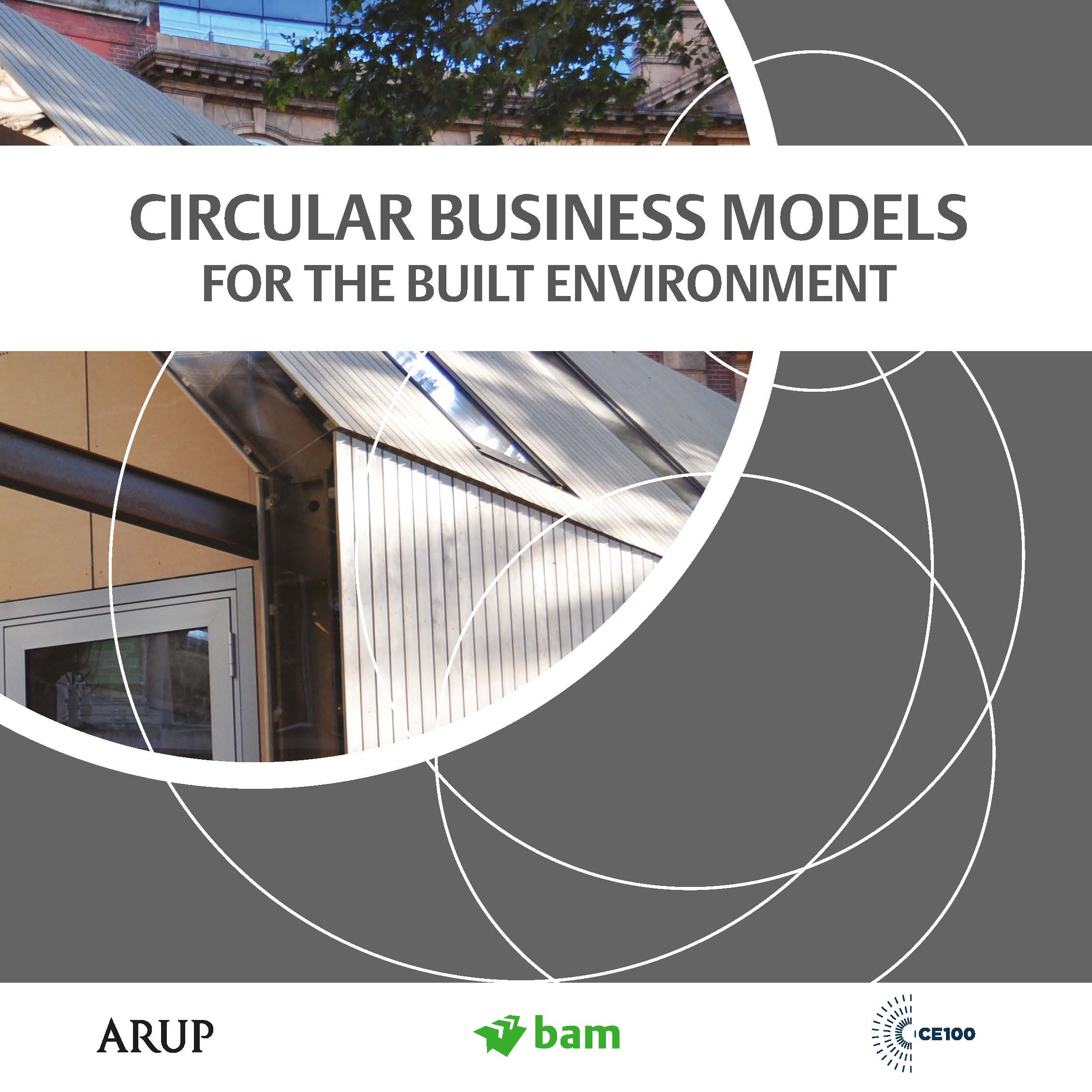
Circular Business Models for the Built Environment
Circular economy: an opportunity for the construction industry.
To instil confidence and reduce the uncertainty surrounding circular business models within the built environment sector, this report explores ways they provide added benefits throughout the value chain. The content of this report is applicable to the built environment as a whole, but many of the examples cited focus on commercial building developments.
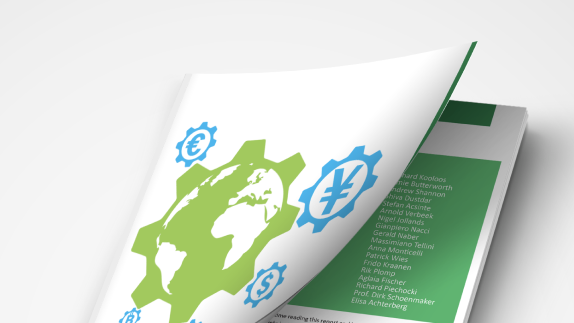
FinanCE
Money makes the world go round (and will it help to make the economy circular as well?)
This inaugural report was published in 2016 by the now called FinanCE Working Group, where fifteen organisations (investors, banks, accountants, academics) have been studying the consequences of an economy that will be increasingly based on circular principles. Just as with any investment opportunity we undertake, the circular economy is about opportunities, risks and impact. A managed transition, with the financial industry playing a major role, will be quicker, less costly and more effective – a true financial benefit.
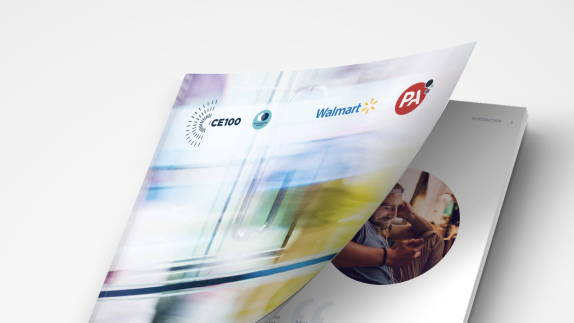
Keeping Customer Connections
Why customer relationships don’t have to end at the point of sale – lessons from the circular economy.
This co.project brought together a range of CE100 members to explore case studies and examples of how retailers can engage with their customers post point of sale to unlock economic opportunities.
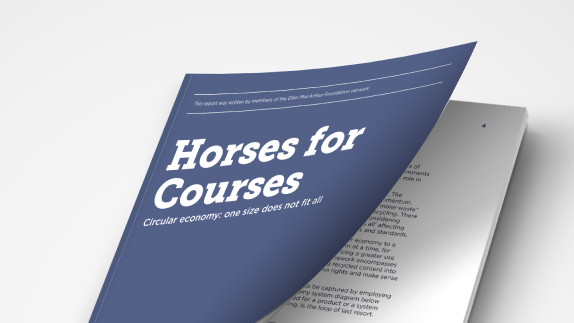
Horses for Courses: One size does not fit all
Circular economy: One size does not fit all.
Led by Schneider Electric and in collaboration with other network members, this white paper highlights the need for a differentiated approach to circular economy regulations where a lot of focus is currently put on recycling. The paper shows that depending on the product or sector, inner-loop circular strategies, i.e. ones focusing on maintenance, re-use, and extension of lifespan, are key to consider.
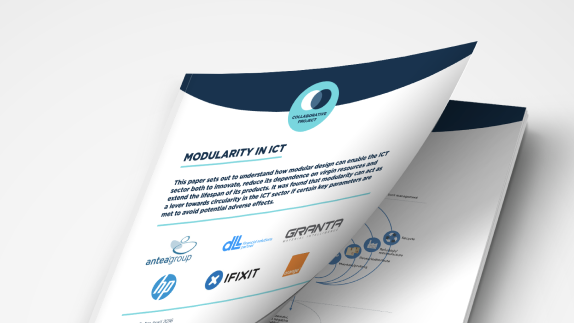
Modularity in Information and Communications Technologies
What does modularity means for the ICT sector?
This paper sets out to understand how modular design can enable the ICT sector both to innovate, reduce its dependence on virgin resources and extend the lifespan of its products. It was found that modularity can act as a lever towards circularity in the ICT sector if certain key parameters are met to avoid potential adverse effects.
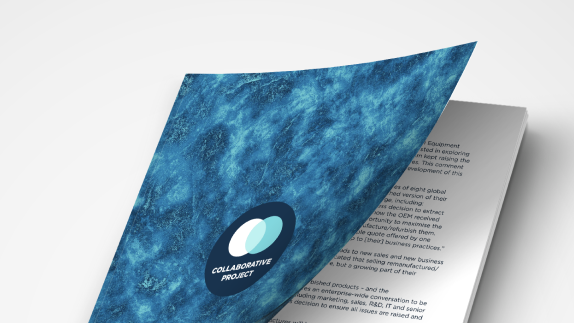
Remanufactured & Refurbished Parts
Busting myths surrounding their impact on new product sales.
This paper shares the thoughts and experiences of eight global organisations, all of whom make a remanufactured or refurbished version of their product. The white paper deliberately examines this issue more from a business perspective because, in order to transition to a circular economy, business decisions will have to be made. The intent of the paper is to help accelerate and inform these conversations, which in turn will help accelerate the adoption of a circular economy.
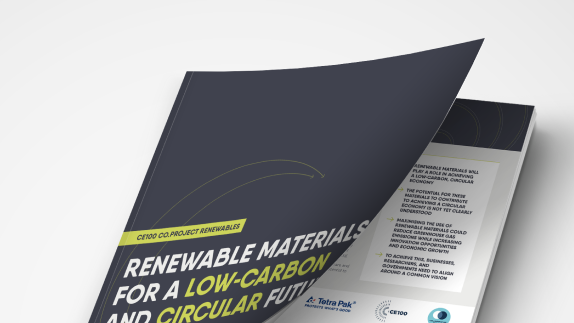
Renewable Materials for a Low Carbon and Circular Future
Maximising the use of renewable materials to reduce greenhouse gas emission while increasing innovation opportunities and economic growth.
This paper is designed to start a conversation. Co.project partners sought to raise the questions that they encounter through efforts to implement circularity within their operations and with their supply chain partners. In this paper, the group set out the opportunities and challenges that face renewable materials today and their shared vision for the future.
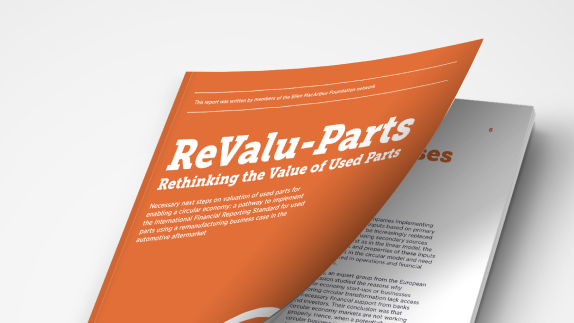
ReValU-Parts
Establishing a trusted methodology to evaluate the financial value of businesses’ used parts in their balance sheet.
In this co.project, the group led by Circular Economy Solutions GmbH is developing cross-industry accepted evaluation methods of used parts to improve the access to finance for circular businesses owning and/or handing used parts. A guideline of IFRS consistent evaluation methods would provide circular businesses with strong arguments to convince auditors and investors as well as to ensure a risk-adequate pricing for M&As.
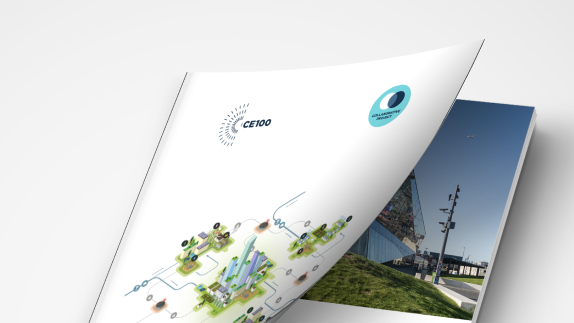
Water and the Circular Economy - Phase 1
Bringing a circular economy lens to water systems.
The paper explores the relationship between the principles of circular economy and Sustainable Water Management, establishing a common language to enable effective communication between circular economy and Water Management practitioners.

